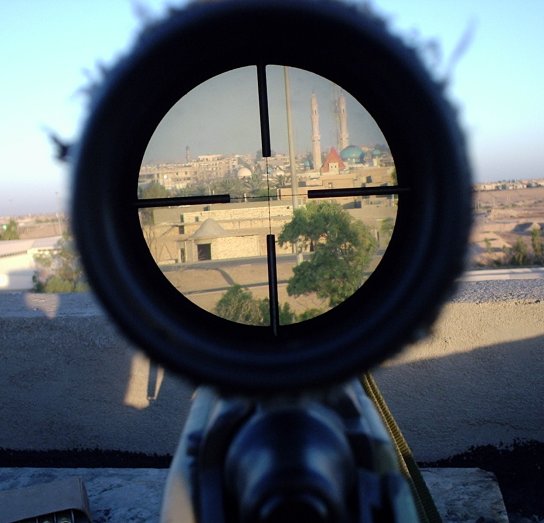From:
WBJ Piracy is a hard-to-combat problem in Poland, one which could cost up to zl.2.5 billion a year and involves teens and C-level executives alike. WBJ takes a look at the practice as it stands today and what's being done to combat it.
Not long ago there was a “Wild West” attitude in Poland towards copyright infringement. The big firms, striving to appear respectable in the eyes of their Western counterparts, did things by the book – licensed software, registered hardware and so on. Among smaller firms, however, it was common enough to make use of less legitimate solutions. The authorities largely turned a blind eye.
For the everyday consumer in Warsaw, a trip to the Stadion (10th Anniversary Stadium) or any number of smaller bazaars would yield contraband cigarettes and alcohol as well as pirated music, software and video games. On those occasions when the odd police patrol sauntered through, vendors a few meters ahead would casually unfurl makeshift tarps to cover their illicit goods, only to hastily uncover them once the patrol had passed by.
But to quote Bob Dylan, whose poorly photocopied face adorned many of the CDs on sale at the recently demolished Stadion, “the times they are a-changin’.” Poland’s police have begun cracking down on piracy, as evidenced by the early November closure of OdSiebie.com, a popular file-sharing site, and the arrest of its administrators. It is estimated that four million people may have visited the site since it opened in June 2008 and that losses to copyright holders amounted to at least zl.250,000.
Meanwhile, in October a man in Sopot was detained by police on suspicion of selling illegal movies over the internet. His collection exceeded 3,000 titles.
Peer-to-peer (P2P) file-sharing is very popular in Poland. According to a November 2008 Symentec report on the black-market economy, the country ranked sixth in the world in terms of the number of files uploaded on P2P platforms. Five percent of all files on these platforms were uploaded from Poland; for games the total was eight percent.
According to Money.pl, software, music and film piracy now result in around zl.2.5 billion in losses every year, a figure it based on research from the Business Software Alliance (BSA), the Foundation for the Protection of Audio-Visual Creativity and the International Intellectual Property Alliance. Regardless of the exact cost of piracy, however, experts agree that it’s a major problem.
The way the music died The proliferation of mp3 players in the Polish market over the past few years has led to an explosion of illegal file-sharing. According to the Polish Society of the Phonographic Industry, only two percent of digital music files in Poland have been purchased legally. In 2008 alone, there were five million illegal music downloads in Poland every week, the organization calculated.
Yet it seems that Poles are growing more used to the idea of paying for music. Growing affluence, crackdowns on file-sharers and better pricing models have all had a hand in this.
Last year Polkomtel, the operator of the Plus GSM mobile-phone services brand, launched Muzodajnia.pl, an online music store. The service is not limited to Plus subscribers and the average price per song is zl.0.08.
The Polish market for paid music downloads is nascent and competition is low. The world market leader, Apple’s iTunes service, remains notably absent from Poland, having in the past cited technical and legal obstacles. Petter Ahrnstedt, an Apple spokesperson for Poland and the Nordic countries, told WBJ that the firm had nothing new to say regarding this matter.
And yet there’s no guarantee that tougher enforcement would help grow the legal downloading market. According to a survey conducted last year by D-Link, 10 percent of Polish internet users would switch to a slower connection if blocked from downloading music and movies. A further six percent claimed they would simply stop using the internet at home and a total of 37 percent said the internet would be less attractive in general.
Corporate criminals? It’s not just kids trading music files that have drawn the attention of Poland’s law enforcement community. Last August, police in Gdansk raided an architectural studio which had 46 different graphics programs illegally installed on its hardware. The next day law enforcement officers in Pozna? arrested the owners of a firm manufacturing industrial equipment which was using unlicensed software worth at least zl.100,000.
According to the BSA, the use of unlicensed software by EMEA region companies cost the industry $10 (zl.27.49) million in H1 2009. During this period Polish firms paid $74,000 (zl.203,469) in compensation for illegal software use and $12,000 (zl.32,999) to license the programs.
Jaros?aw Szawlis, CEO of Wroc?aw-based business software producer InsERT, claims that the problem of “hard piracy” – when management deliberately and knowingly installs illegal software on company equipment – has always been marginal.
“A bigger problem is ‘involuntary piracy,’ when a lack of legal knowledge about software licenses causes confusion among users,” he said.
“If I buy software for company A and don’t use it there, can I use it in my company B? If I buy software for one computer, can I install it on other computers in the firm? Can I use the software via virtual private network? If the firm changes its corporate form, can I still use the same software legally?” Mr Szawlis asked, listing common questions. Additional confusion arises, he noted, because software vendors alter their licenses with every update.
“We often become pirates without even being aware of it,” he said.
The “2008 Global Software Piracy Study,” created by the BSA and research firm IDC, showed that 56 percent of computers in Poland had illegal software installed on them. Only Greece, Romania and Bulgaria had higher rates among EU27 countries.
The software piracy rate in Poland has been slowly falling over the last few years, down from 59 percent in 2004, but at the same time financial losses associated with the practice have grown quickly. In 2004 these amounted to around $379 million, whereas last year the estimate was approximately $648 million. That put Poland in 14th place among the world’s top 25 countries in terms of losses incurred from software piracy.
Roots of the problem The growing cost of software piracy stems from several causes, not least of which is the computer penetration rate.
“This is a result of the rising number of computers in Poland. The piracy rate is decreasing, but the value of illegal software is rising proportionally with the growth in number of computers,” Bart?omiej Witucki, a BSA spokesperson, told WBJ.
Software costs could be another factor, although experts held differing opinions here. “A person might say, ‘If I can get something for free, why should I pay for it?’,” InsERT’s Szawlis said.
But Microsoft Poland spokesperson Joanna Fr?ckowiak dismissed the high cost of commercial software as a myth. “Very often the total cost of ownership is lower de facto than for open source solutions,” she said. “Besides, everyone deserves fair remuneration for their work and nobody wants to be robbed.” Ms Fr?ckowiak also noted that software revenues go towards investments in R&D and to maintain tech support.
Other things affecting piracy rates include social approval of such behaviors, ineffective laws and a lack of large anti-piracy campaigns. “The high costs of implementing and maintaining security at a corporation is also a major factor,” added Dariusz Wójcik, a systems security specialist at IT firm Comarch.
Awareness and solutions
Although the pace at which Poland’s piracy rate is falling may seem unsatisfactory in comparison to countries like Russia or China, the BSA’s Witucki emphasized that the downward trend is stable. At the same time, he noted a number of initiatives which could contribute to an even steeper decline in the future.
“There is an ongoing educational campaign by the BSA, the Economy Ministry and the Polish Chamber of Commerce which encourages Polish firms and public administration offices to conduct software audits and implement software asset management [SAM] procedures. This leads to greater legal and IT security,” said Mr Witucki. He noted that SAM practices are becoming increasingly popular among Polish firms, and that several companies now specialize in this area.
For its part, Microsoft will soon launch an awareness campaign highlighting the risks of using pirated software, such as identity theft and viruses.
According to IDC data, the number of broadband users worldwide grew by 135 million last year, while a further 460 million are expected to appear over the next five years in emerging markets alone. This will undoubtedly contribute to global piracy, especially since the economic crisis has stalled some anti-piracy efforts.
till, IDC expects software piracy rates to continue to drop on a per country basis. Regarding the global outlook, the research firm believes that the market for legitimate software will begin to crowd out pirated software in a few years and the global rate will begin to fall.
However, hopes that EU legislation would soon add muscle to the fight against piracy were dashed last week. The European Parliament voted down a legislative package which would have imposed strict penalties on P2P service administrators and allowed ISPs to temporarily disconnect file-sharers from the internet.
Given the demise of the Stadion and its ilk in recent years, the internet seems to be the last bastion of Poland’s would-be pirates. Tighter controls and stricter penalties on everyday P2P users would go a long way towards putting an end to the problem.















































